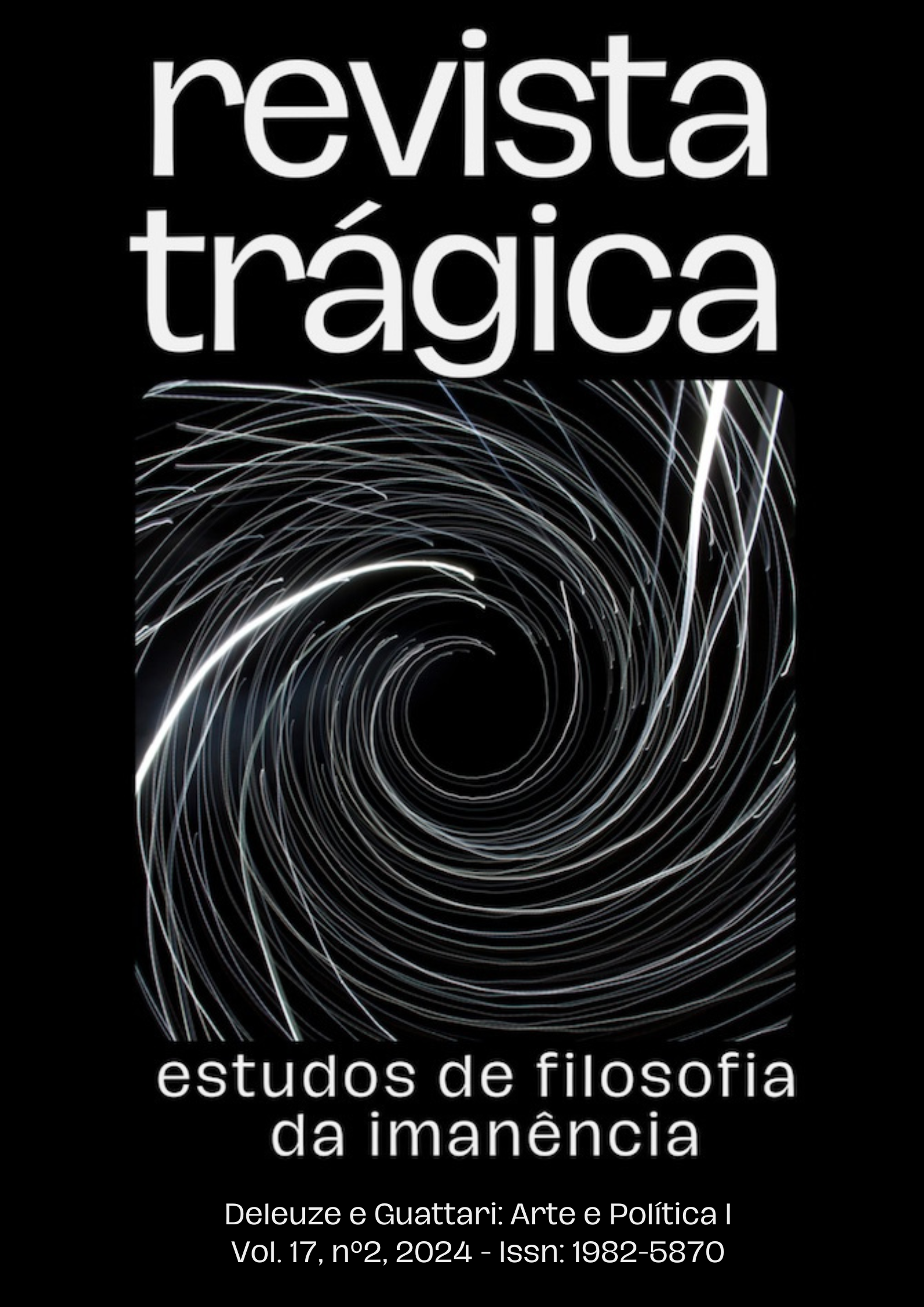Literatura e Política em Deleuze
Proust, Kafka e Melville
DOI:
https://doi.org/10.59488/tragica.v17i2.64619Abstract
Throughout his work – with or without Félix Guattari –, Deleuze uses literature to raise problems and propose new concepts. The purpose of this article is to explain the philosopher's use of literary art through the analysis of three cases: Proust, Kafka and Melville. The focus is the importance of each of these writers to put forward his political issues. Thus, in Proust and Signs, the connection between the concepts of sign and style promotes politics in language calling into question the notion of the Whole, giving rise to a new look at sets, as derived unity. In Kafka: for a Minor Literature, written with Guattari, the question is the way in which Kafka explores the usage that the Jewish minority of Prague makes of standard German in order to dismantle it and, with this, drag the coordinates of the social field in the direction of a “becoming-minority”. In the essay on Melville (Critic and Clinic), the formula “I would prefer not to” triggers the development of a typology of characters in which Bartleby and Billy Bud, on the one hand, and Ahab and Claggart, on the other hand, appear as antipodes that allow to put in tension the North American democratic ideal and open it to new connections (a becoming-democratic).
Downloads
Downloads
Published
Issue
Section
License
Copyright (c) 2024 Mariana de Toledo Barbosa, Ovídio Abreu, Paulo Domenech Oneto

This work is licensed under a Creative Commons Attribution 4.0 International License.
Authors retain the copyright and grant the journal the right of first publication, with the work simultaneously licensed under the Creative Commons Attribution 4.0 International (CC BY) license. This license allows third parties to remix, adapt, and create from the published work, attributing authorship and initial publication in this journal. Authors are authorized to assume additional contracts separately, for non-exclusive distribution of the version of the work published in this journal (e.g. publishing in an institutional repository, on a personal website, publishing a translation, or as a book chapter), with recognition of authorship and initial publication in this journal.

















